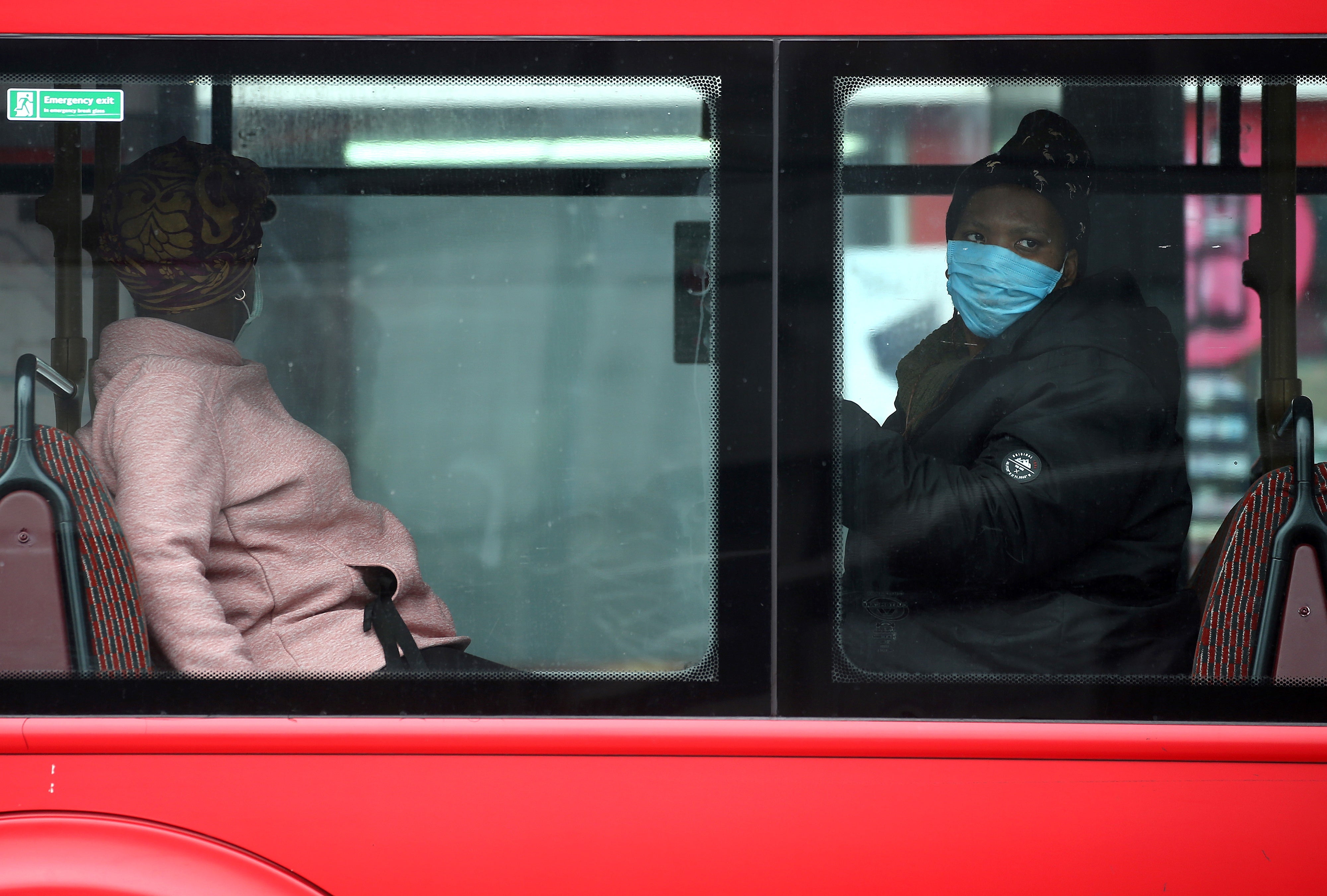Black people at almost twice the risk of dying from Covid-19, study finds
Research also finds disabled people and those in lower-paid and manual jobs disproportionately affected

Your support helps us to tell the story
From reproductive rights to climate change to Big Tech, The Independent is on the ground when the story is developing. Whether it's investigating the financials of Elon Musk's pro-Trump PAC or producing our latest documentary, 'The A Word', which shines a light on the American women fighting for reproductive rights, we know how important it is to parse out the facts from the messaging.
At such a critical moment in US history, we need reporters on the ground. Your donation allows us to keep sending journalists to speak to both sides of the story.
The Independent is trusted by Americans across the entire political spectrum. And unlike many other quality news outlets, we choose not to lock Americans out of our reporting and analysis with paywalls. We believe quality journalism should be available to everyone, paid for by those who can afford it.
Your support makes all the difference.Black people are at almost twice the risk of dying from Covid-19 than white people, according to a new study commissioned by London mayor Sadiq Khan.
Disabled Londoners and people in areas of high deprivation have also been disproportionately affected by the pandemic, found the study, by researchers at the University of Manchester.
Mr Khan has urged the government to tackle “structural problems” on society after the independent report highlighted the uneven effect of the pandemic in relation to factors such as ethnicity and gender.which have caused coronavirus to impact
The study found black people were 1.9 times more at risk of dying of Covid-19, partly due to long-standing socio-economic inequalities and the over-representation of Bame people in jobs such as health and social care, where exposure to the virus is heightened.
Researchers analysed data from local and national sources to assess the impact of coronavirus on people with protected characteristics.
They suggested a lack of London-focused and Covid-specific data had hindered attempts to assess the virus’s impact on those with protective characteristics in the capital.
Mr Khan said: “It is simply not right for ministers to say they will do ‘whatever it takes’ to mitigate the effects of the coronavirus crisis but then stand by as whole sectors of our society find their lives and their livelihoods at risk.”
He added: “I urge ministers to invest in our communities and the organisations supporting those most at risk, to ensure that accessible health guidance is available to all and, as case numbers are rising again, that there is adequate support in place for those who’ve lost their jobs, had their hours cut or been forced to self-isolate.”
The research highlighted disabled people had reported increased difficulties performing practical tasks during the pandemic such as food shopping and finding accessible and up-to-date information.
Death rates for men in lower-paid and manual roles were found to be three times higher than those in managerial, business or desk-based jobs.
Men have previously been found to be more likely to die from Covid-19, according to Office for National Statistics data.
Meanwhile, women have experienced uneven economic, social and psychological impacts of the pandemic. In particular, mothers have been 47 per cent more likely to have lost or resigned from their jobs than fathers.
The research comes at a time when cases continue to surge in London, with latest figures showing the weekly Covid-19 infection rate in the capital has passed 3,000.
MPs have said the real level of the disease in the city may be higher but has been concealed due to a shortage of testing.
A spokesperson for Mr Khan warned last week that London was at a “very worrying tipping point” and “immediate action” was needed to control the surge.
At the height of the pandemic earlier this year, the London mayor said the government “cannot ignore the structural problems in our society that mean minority ethnic Londoners are more likely to work in lower paid jobs, live in overcrowded accommodation and suffer from underlying health conditions which put them at greater risk”.
Subscribe to Independent Premium to bookmark this article
Want to bookmark your favourite articles and stories to read or reference later? Start your Independent Premium subscription today.




Join our commenting forum
Join thought-provoking conversations, follow other Independent readers and see their replies
Comments